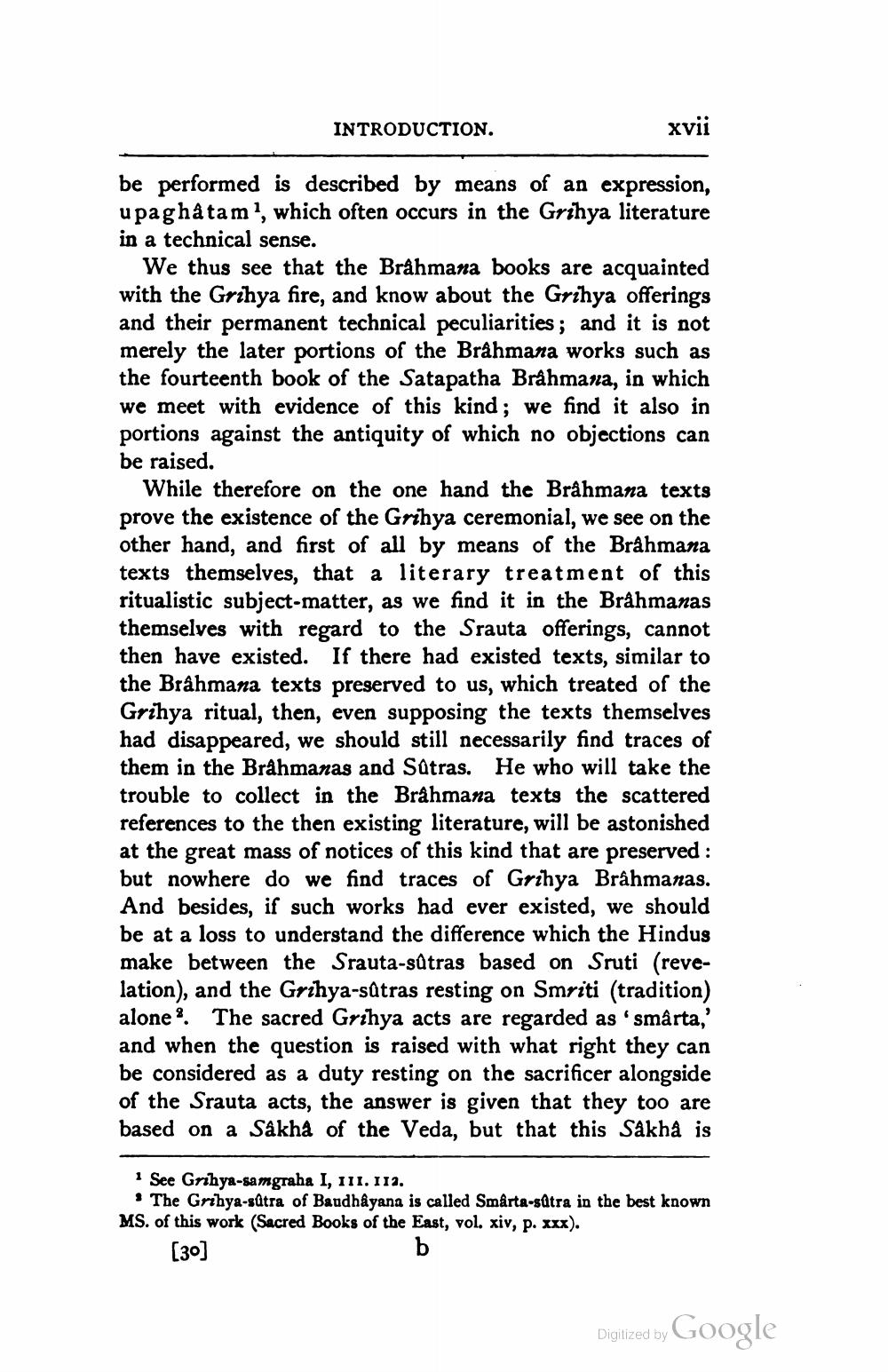________________
INTRODUCTION.
xvii
be performed is described by means of an expression, upaghâtam1, which often occurs in the Grihya literature in a technical sense.
We thus see that the Brahmana books are acquainted with the Grihya fire, and know about the Grihya offerings and their permanent technical peculiarities; and it is not merely the later portions of the Brahmana works such as the fourteenth book of the Satapatha Brahmana, in which we meet with evidence of this kind; we find it also in portions against the antiquity of which no objections can be raised.
While therefore on the one hand the Brahmana texts prove the existence of the Grihya ceremonial, we see on the other hand, and first of all by means of the Brahmana texts themselves, that a literary treatment of this ritualistic subject-matter, as we find it in the Brâhmanas themselves with regard to the Srauta offerings, cannot then have existed. If there had existed texts, similar to the Brahmana texts preserved to us, which treated of the Grihya ritual, then, even supposing the texts themselves had disappeared, we should still necessarily find traces of them in the Brahmanas and Sutras. He who will take the trouble to collect in the Brahmana texts the scattered references to the then existing literature, will be astonished at the great mass of notices of this kind that are preserved: but nowhere do we find traces of Grihya Brâhmanas. And besides, if such works had ever existed, we should be at a loss to understand the difference which the Hindus make between the Srauta-sûtras based on Sruti (revelation), and the Grihya-sûtras resting on Smriti (tradition) alone. The sacred Grihya acts are regarded as 'smârta,' and when the question is raised with what right they can be considered as a duty resting on the sacrificer alongside of the Srauta acts, the answer is given that they too are based on a Sâkha of the Veda, but that this Sâkhâ is
1 See Grihya-samgraha I, 111. 112.
The Grihya-sûtra of Baudhâyana is called Smârta-sûtra in the best known MS. of this work (Sacred Books of the East, vol. xiv, p. xxx).
[30]
b
Digitized by
Google




